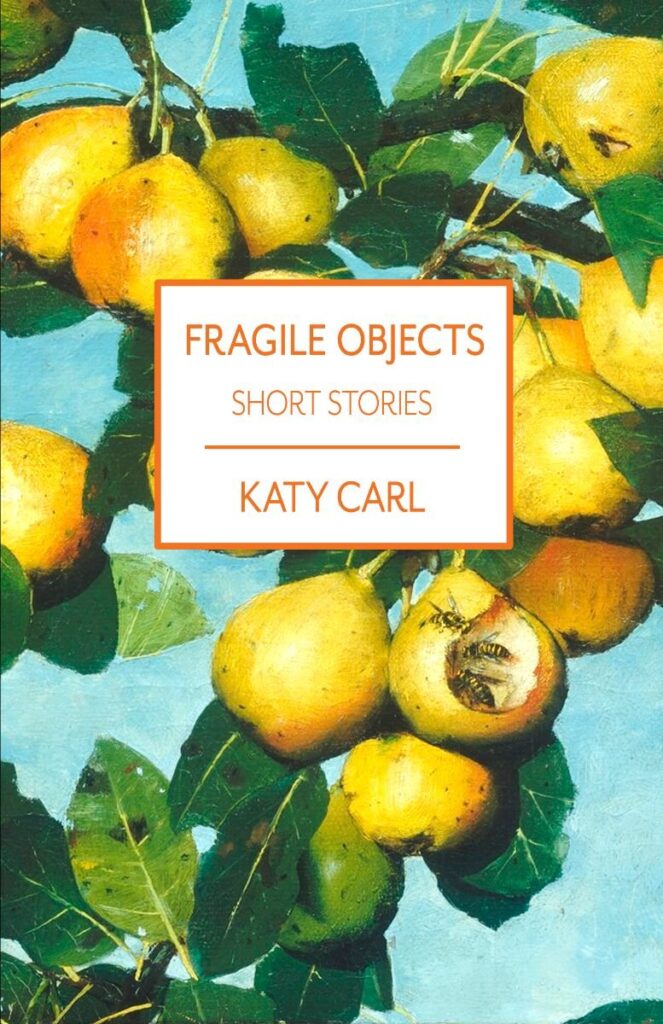“Fragile Objects: Short Stories”
Katy Carl
Wiseblood Books, 2023, 313 pages
Catholic writer Katy Carl earned significant notice with the 2021 release of her debut novel, “As Earth Without Water.” The book was praised as a moving mediation on such issues as true freedom, personal choice, suffering and the action of grace in human striving.
When not crafting stories, Carl serves as editor-in-chief of “Dappled Things” magazine, a Catholic-themed journal publishing poetry and fiction from established and emerging writers. Her latest release, “Fragile Objects,” is an eclectic collection of short stories almost certain to advance her reputation as a writer worth paying attention to.
It’s no exaggeration to suggest that this collection may be a triumph of story writing. The prose is fresh and colorful, and the author’s use of simile is noteworthy. Consider, for example, this passage from “Sequatchie Valley,” the 10th of the 12-story collection. In describing a young married couple’s ill-fated decision to reject urban life and get back to the land, Carl offers this striking image: “The day hung damp in thick evergreen branches, gray and heavy like laundry forgotten in the rain.”
Most of the stories in the new release suggest themes of isolation, vulnerability and fear of reaching beyond the moral constraints we learn early in our lives. In “Pantheon,” for example, Carl offers the sad tale of Rachel, a sheltered young woman longing to break free from family-imposed thinking and modes of behavior. Her transgressions not only do not thrill, but they bring about abuse and rejection from a would-be new friend. “She had lived inside the continually shrinking perimeter of ‘Thou shalt.’ Outside its borders lay the margin of ‘Thou shalt not,’ which encompassed things she now knew others did every day, every hour. Once she stepped over that line, it seemed to her that nothing was out of bounds anymore, that she could do anything at all.”
Catholic readers will be intrigued by the subject matter in the stories “Company Man” and “The Convert.” The former deals with the complicity of complacent priests, bishops and church bureaucrats who worry more about reputation than protecting vulnerable members of their faith community. In this story a pastor suppresses his suspicion of his assistant priest’s “predatory” behavior among children; he is paralyzed into inaction for fear of the public relations fallout. Carl paints a moving word picture of Father Donner’s reaction to the ultimate suicide of his abusive clerical colleague: “All [his] grief now was spent on the girls and the boys pinned glossy to the pages, at least a hundred pages, littering the floorboards, the desk, the sheets of the unmade bed. All the little lives curled around themselves, my Jesus mercy, like fallen petals, tossed aside in the breeze that shook the lace curtains at either side of the open window.”
“Convert,” meanwhile, effectively outlines the struggles of a hedonistic young man Tyler, who plans to enter the Catholic faith. Not only does the story emphasize the conflicted thinking of certain converts, but it also raises the issue of perceived self-mortification as the price of admission to a new faith. Ultimately Tyler comes to startling conclusions about the actions of grace in overcoming doubt, temptation and occasional suffering. “Why this desperate dependence on pleasure,” he wonders. “Why had he been given this? Desire without selfishness? … It’s all about a gift of ourselves to God, which is the only real response that makes some small echo of His gift of self to us. All the rules and laws and regulations that seem so stupid to other people make sense to us. We know these are where we find our freedom. … The only things he asks of us are those he also gives us the grace to do.”
There is compelling diversity in Carl’s story structure and narrative technique — all of it meshing to invite readers to reflect on such intangible concerns as spiritual restlessness, motivation, confusion, doubt and inescapable yearning.

